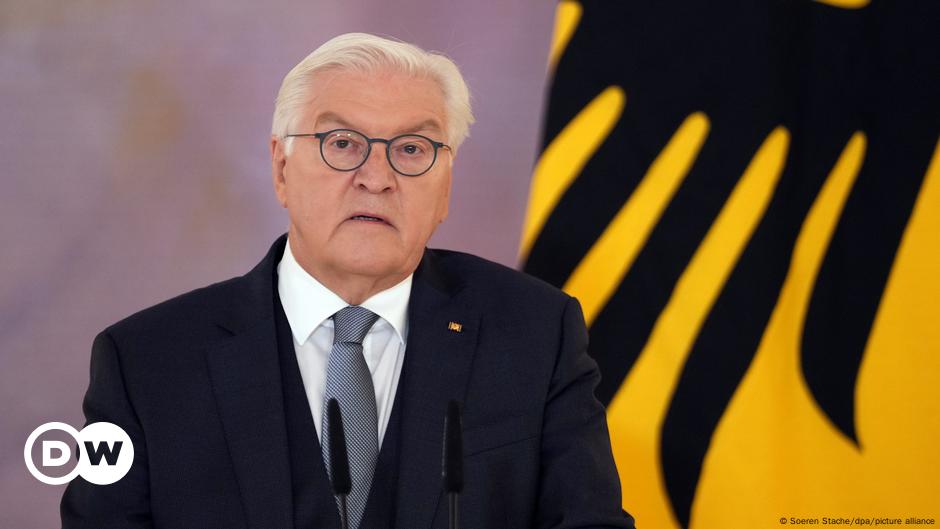The long-awaited announcement came on November 11, when the California-based tech giant revealed details at a press conference in Berlin.
Philip Justus, Google’s managing director for Germany, said the company would invest €5.5 billion ($6.37 billion) over the next four years, including the construction of a new data center in Dietzenbach and expansion at existing sites in Munich, Frankfurt and Berlin.
German officials hailed the announcement as a boost to the country’s digital ambitions.
“We want to make Germany a leading location for data centers in Europe,” Carsten Wildberger, the German minister responsible for digitalization, told news agency Reuters.
Research Minister Dorothy Baar called Google’s move proof that “Germany is already an attractive place.” The investment will bring “growth and added value to our country,” he said.
Finance Minister Lars Klingbeil also praised the plans, calling them “exactly what we need right now.”
Speaking to German news agency dpa, he called the initiative “a real investment in future innovation, artificial intelligence, climate-neutral transformation and future jobs in Germany.”
Google said its investment would “secure approximately 9,000 jobs annually in Germany until 2029.”
Experts urge caution
While many celebrated the announcement, some experts warned against ignoring the potential downsides.
Catharina Hölzle, director of the Fraunhofer Institute in Stuttgart, Germany, told DW that she welcomed the investment “because it shows that we are even more attractive than we thought.” But he also expressed concern that “new dependencies could arise,” warning that “we are building additional infrastructure here that will make it even more difficult for us to break away later.”
Wolfgang Eppler, a researcher at the Institute for Technology Assessment and Systems Analysis (ITAS) in Karlsruhe, Germany, called the investment “a lot of money,” but said it pales in comparison to U.S. spending levels.
“When you look at what the US is investing – for example, $500 billion – it’s really just a drop in the ocean,” he said.
The scale of Google’s investment underscores the growing gap between Europe and the US, where tech companies like Microsoft, Google and startups like OpenAI are pouring hundreds of billions of dollars into expanding artificial-intelligence (AI) computing capacity.
According to Bloomberg, Google’s German project is expected to use 10,000 graphics processing units (GPUs) – a fraction of the 500,000 GPUs planned for a single data center project in Texas backed by SoftBank, OpenAI and Oracle.
broader industry momentum
Google isn’t alone in betting on Germany’s data economy. Just last week, German telecom operator Deutsche Telekom and American AI chipmaker Nvidia announced a joint €1 billion data center project.
According to industry association Bitcom, total data center investment in Germany will reach approximately €12 billion this year.
In September, French firm Data4 announced plans to invest approximately €2 billion and laid the foundation stone for its first German facility in Hanau.
Meanwhile, Heilbronn’s Innovation Park for Artificial Intelligence (IPAI) is set to become Europe’s largest AI ecosystem with a focus on chip design.
The surge in AI-driven demand for computing power has accelerated data center construction. A recent study by Bitcom found that Germany’s total server capacity is expected to nearly double to 5 gigawatts by 2030.
a european push
The European Union is also trying to bridge the technology gap. In February, it unveiled a €200 billion plan to boost AI development and triple the sector’s capacity for such systems by 2032.
Deutsche Telekom is reportedly in talks with several companies about building so-called AI gigafactories, although progress has been slow and Brussels has not yet detailed how it will vet the projects or allocate funding.
Google says its new German facilities will be built with sustainability in mind. The company plans to collect waste heat from its Dietzenbach data center and reuse it by feeding it into regional utility EVO’s district-heating network. Once operational, the system can supply hot water and heating to more than 2,000 homes in the surrounding area.
A completely climate-neutral data center remains a challenge, says Fraunhofer’s Hölzle, who remains cautiously optimistic.
“I don’t know if we’ll reach absolute zero [emissions],” He said. ”But we should be thinking about how, if we’re not building our own data centers, how can we at least develop the technologies that will be used in them – I certainly see opportunities for us there.”
Europe’s digital sovereignty in danger?
Both experts interviewed by DW urged policymakers to remain vigilant.
“We should not make ourselves too dependent,” cautioned Eppler, the ITAS researcher. He said an American company would be storing and processing the German data.
Hölzle said he takes some comfort from the fact that “the discussion about digital sovereignty has grown over the past twelve months.”
Still, he said it is “absolutely vital” that German policymakers “pay close attention” to where these data are stored and who has access to them.
“This is a fundamental issue to protect the competitiveness of German industry,” he said.
This article was originally written in German.






Leave a Reply